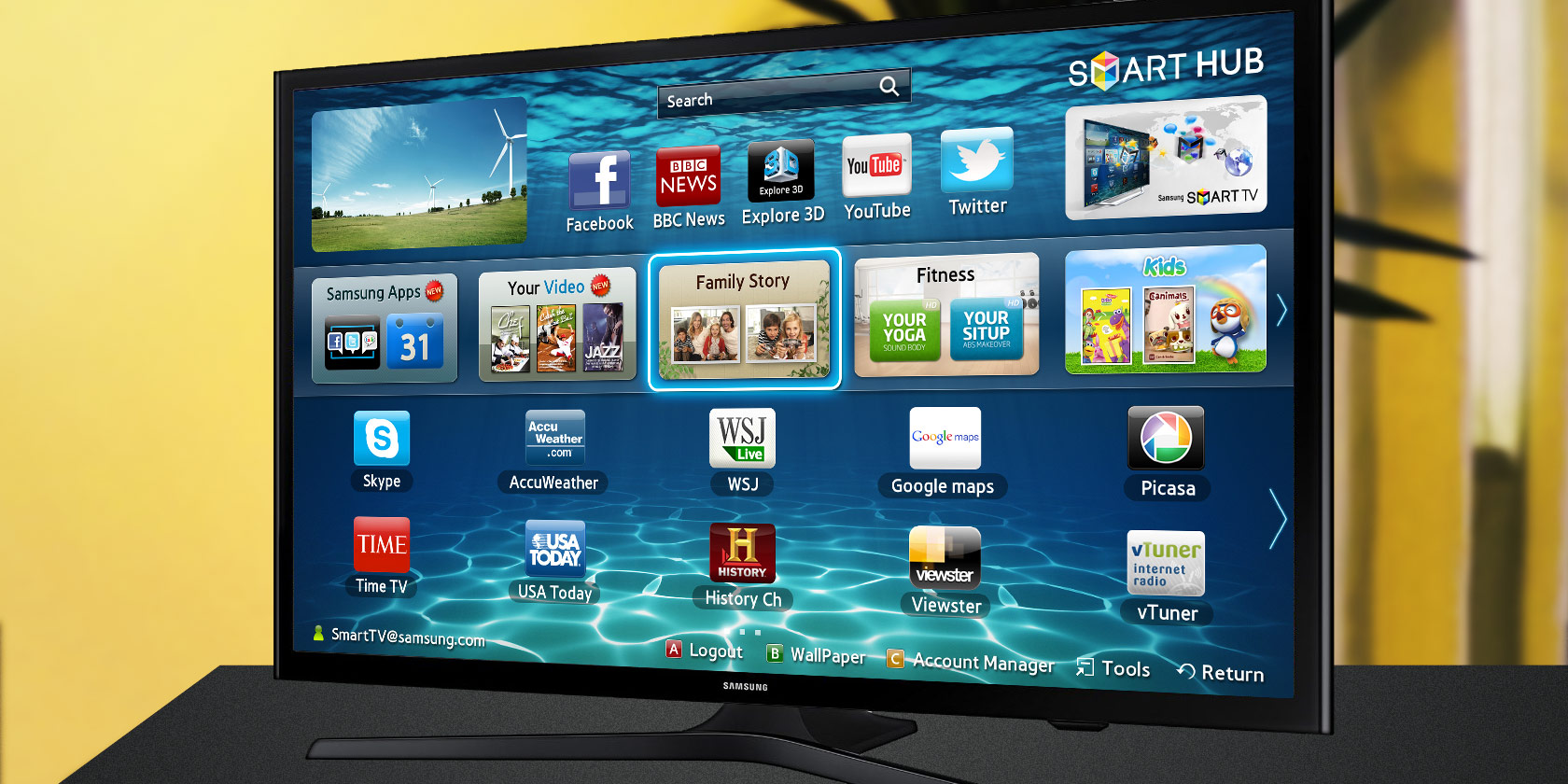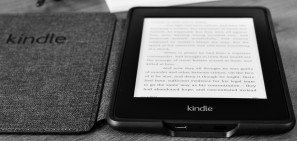
Smart TVs have gone from being a luxury item to the standard. When you walk into an electronics store or shop online for a new TV, there’s a good chance that you’ll find a smart TV for an affordable price.
While they have a lot of benefits, you shouldn’t buy a smart TV without thinking about it first. Let’s look at several reasons why you shouldn’t buy a smart TV…
What Is a Smart TV?
Essentially, smart TVs are regular TVs that have the built-in capability to connect to the internet. This means that your TV itself goes online, instead of having to use a connected device like a Roku box or gaming console to access online services.
Because smart TVs are connected to the internet, they usually let you download apps just like you would on your phone. Most smart TV platforms have apps for major streaming services like Netflix and YouTube, plus offerings for major TV networks and more niche services. You can also use them to browse the web and access other resources on your home network.
Having your TV online is definitely useful, and their now-affordable pricing means that you don’t have to shell out extra for these features. But we still think non-smart TVs have their place in your home. Here’s why.
1. Smart TV Security and Privacy Risks Are Real
When you consider buying any “smart” product—which is any device that has the ability to connect to the internet—security should always be a top concern. Every internet-ready device contributes to the “internet of things,” which is arguably one of the worst security nightmares of our time.
As it turns out, smart TVs are one of the worst offenders. They put your privacy and security at risk in several ways; even the FBI has warned of the risks of smart TVs.
Nearly all smart TVs use automatic content recognition (ACR) to track what you’re watching. They use this information to show you more relevant ads. While you can often limit the collection of this data, it can be difficult to find or reverse. Do you really want to share everything you watch with your TV manufacturer?
Another major security problem with smart TVs is a lack of updates. Every individual platform is dependent on its provider for app and OS updates. If you have a TV that no longer receives updates or takes a long time to receive software patches, your TV could be a vulnerable point on your network.
Finally, some smart TVs have integrated cameras, and most have a microphone. Malicious actors could take advantage of the above security vulnerabilities to spy on you through your webcam. And it isn’t just hackers abusing this: in 2015, CNN reported that Samsung’s privacy policy mentioned transmitting your conversations to a third party.
Whether from a hacker or your TV manufacturer, that’s a lot of data up for collection when you just want to watch television.
2. Other TV Devices Are Superior
The main draw of smart TVs is that you can access Netflix, Hulu, Spotify, and similar services right from your TV. While this idea is great, those services aren’t exclusive to smart TVs. And in fact, you can get a lot more from an alternative platform.
Options like Roku, Amazon Fire TV, Apple TV, or Chromecast are far better platforms. They offer less convoluted interfaces that are much easier to navigate than your smart TV. The app selection is likely far smoother than what your smart TV’s app store offers. And depending on what ecosystems you already use, these devices offer greater convenience and integration with your devices.
For example, the Amazon Fire TV has an Alexa-enabled remote control, allowing you to play your favorite shows without fumbling through menus. If you have a lot of Apple devices, the Apple TV makes it easy to share media from your iPhone or iPad. For most people, these perks are far better than suffering through what’s included on your smart TV.
In short, set-top boxes like the Apple TV and streaming sticks like the Chromecast do everything your smart TV can do, but better. They’re inexpensive and much more flexible. Since you can add them to any TV, your television set itself remains a simple display while the device handles what you’re watching.
While a smart TV may become obsolete after a few years, you can easily replace your streaming device or take it with you to a new TV. See our comparison of the best 4K streaming devices to see which is best for you.
3. Smart TVs Lack Smart Interfaces

Smart functionality requires a smart interface. Smartphones and computers are great because they both support two important input methods: typing and pointing. Smart TVs are terrible at both, and this can lead to a lot of frustration.
In other words, when you want to sit down and watch something on a smart TV, it’s actually a lot more work than you’d expect. It’s not overwhelming, but makes what should be a fun experience inconvenient at best.
One major example is when you want to search for a particular TV show or movie on a service. With a regular TV remote, typing is a hair-pulling affair that could take up to a dozen button presses per letter typed. While most smart TVs have microphone support, the stock solution is often spotty.
On the other hand, most streaming boxes come with remotes that have superior voice assistants. Some of them also have mobile TV remote apps, which support typing out your searches on a smartphone or tablet.
And that’s only one issue. Many smart TVs are plagued with generally poor interfaces that take a lot of button presses to get anywhere and hide important settings where you might miss them. Even the remote control can be confusing, hiding some functions behind colors or letters that aren’t at all evident.
If you have an older smart TV that no longer receives updates, you could be stuck with these poor interfaces for a long time.
4. Smart TV Apps Are Often Unreliable
Using smart TV apps to watch content is convenient, but the apps are almost always inferior to what you use on your phone or computer. In addition to the interface issues discussed earlier, this is also because smart TVs don’t have nearly as much processing power as other devices.
Poor performance and neglect from app developers is common. Most smart TV users have experienced input lag when pressing buttons, freezes and crashes when apps try to do something intensive, and other performance-related issues. This leads to you having to kill apps and restart them, which is never fun.
Smart TVs also run into glitches. For example, the YouTube app on my TV had an issue for weeks where video titles overlapped with the one below, making them near-impossible to read. I have to re-pair my Bluetooth headphones with my TV several times per week. And when I disconnect an HDMI cable and reconnect it, the TV forgets the name I set for that input and makes me replace its shortcut icon.
These issues aren’t really a surprise. Content providers have to juggle compatibility with a lot of outlets these days, including web players, smartphone apps, tablet apps, third-party devices like the Roku and Chromecast, and smart TVs. Which one do you think has the lowest priority?
This brings up another potential issue: the usefulness of your smart TV is limited by the apps that are available for it. If content providers stop updating their smart TV apps for whatever reason, your smart TV loses a big chunk of what makes it “smart.”
In just a few years from now, your smart TV might end up becoming a dumb TV through no fault of your own. If that happens, you’ll have to rely on set-top boxes and other streaming methods anyway.
Should You Buy a Smart TV?
Smart TVs definitely have a lot of advantages, so we aren’t necessarily trying to dissuade you from buying one. However, it’s important for you to know why smart TVs aren’t always everything they’re cracked up to be.
The security and privacy issues are one of the biggest drawbacks, but clunky interfaces and glitches are hindrances too. It could be argued that smart TVs have dropped in price because they’re a ripe platform for data collection.
If, after reading all of this, you still want to buy a smart TV, go for it. It’s becoming more difficult to find a quality TV that’s not smart, so if you want to you can avoid connecting it to the internet to keep it “dumb.” You can always supplement the TV with a streaming box if you decide to go online later.
For anyone still in the market for a smart TV, take a look at the best smart TV operating systems to find which one will be best for you.
Read the full article: 4 Reasons Why You Shouldn’t Buy a Smart TV





